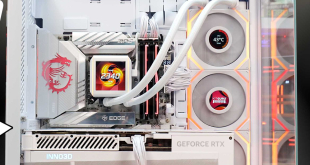While Ebook and Ereader sales have shown enormous growth in the past few years, thanks to Amazon's Kindle, the Nook Tablet, smaller companies like Kobo and more, the entire industry is coming under threat from price competition between content providers.
Some of the best selling authors now have digital books on sale for as little as 20p. One such title quoted by The Guardian, is James Herbert's newly released bestseller Ash, priced at £18.99 for the hardback version. To give that a bit of context, the digital copy sells for almost 99 per cent less than the only available hard copy version. Herbert is still happy though. Amazon takes the hit, passing on the full cost of the novel to the author (minus his agent's and publisher's take).

But he's worried long term. Herbert believes that this will begin to set a precedent that 20p is all a book is worth. Promotions like these could also massively hurt new writers or ones that are relatively unknown. Herbert is a big name, he's going to sell a lot of copies. If you saw an author you didn't recognise in what is essentially the digital version of a bargain bin, you probably wouldn't take much notice.
Authors aren't the only ones worried. Sony, despite taking part in the price drops has staff that are wary of the situation. Peter Shea, general manager at Sony Digital Reading Services, said that he wanted it made clear that this was a promotion, not the new price of Ebooks.
KitGuru Says: As someone trying to become an author, news like this is a little disheartening. What do you guys think? Are books worth more than 20p? Less? Nothing? Let us know below.
 KitGuru KitGuru.net – Tech News | Hardware News | Hardware Reviews | IOS | Mobile | Gaming | Graphics Cards
KitGuru KitGuru.net – Tech News | Hardware News | Hardware Reviews | IOS | Mobile | Gaming | Graphics Cards



Well I am a published author and I welcome it. My publisher has been refusing to put out a Kindle version for fear it will hurt sales of the already printed hard and soft copies, but it’s madness. You have to apply the same logic you do to torrents – ecopies of books are good promotion, and under 50p is the right price for something that requires no artwork and next to no storage and distribution. If you want to give someone a present, you give them a new, hard copy – something 20p ecopies and 1p secondhand copies can’t provide – and you’d be mad to take your kindle into the bath, so paperbacks will always have their place. Both will survive, but only on a much smaller scale.
Wannabe authors, like wannabe rockstars, will have to accept – like wannabe models, actors, comedians, hairdressers, photographers and even politicians already have – that there are far more people wanting to be enter the industry than it can support, and largely you will have to provide your work, at least for the first few years, for free. True, this does tend to initially hand those professions into the hands of those from wealthy families, but it also rewards those who are dedicated enough to produce work even when they’re struggling with a day-job. Many of the greatest works have been written by those who were under the hammer in their life at the time. The genie is out the bottle and it won’t go back; trying to artificially retain the high price of books (or music) is as ridiculous as the lead-type print workers trying to stop the introduction of desktop publishing – the battle is over, you’ve already lost.
If you’re talented enough, you will progress and there will be spin-offs in appearance fees etc. That’s where the real money lies and why even best-selling authors like Ian Rankin are never off the box, but a dream of producing one great book or album and retiring on the proceeds are absurd. (And it truth it always was, as record companies and publishers have always taken the lion’s share of revenue – how many stars of the 60s-90s have nothing).
I realised that even if my book topped the best-seller list for a week, I’d only make a few thousand at best, so insisted that all profits go to charity – I lose very little and gain good publicity. And if I could put out a 20p kindle version I would do it tomorrow. And if it was pirated – good and well. Copyright and patent law are fit only for the bin in their present state.
I’d like to say I also hold a couple of camera patents – but I don’t, I couldn’t afford them. Which raises the side issue of why authors and musicians are currently afforded significant free and long-lasting protection, comedians are given none (stand-ups have never won in court for stolen jokes), and inventors are expected to pay huge sums for minimal, short-lived support. The answer is very long and rooted in history, but now it’s better to look forward and scrap the flawed idea of ‘intellectual property’ altogether. Embrace the new era and think about what you can do with the tech, instead of hoping the past will hang around long enough for you to make a buck.